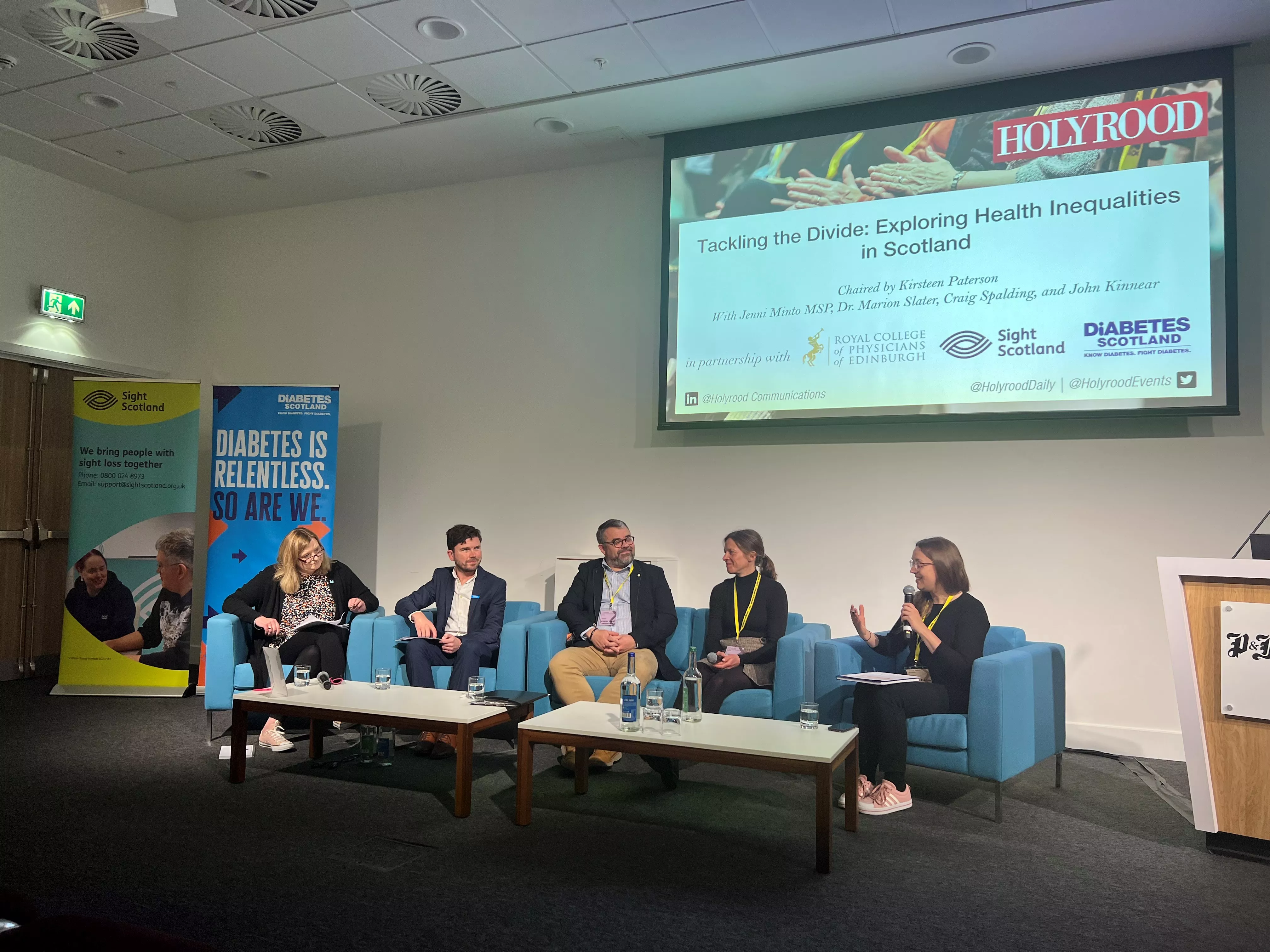
Diabetes Scotland took part in a key fringe event at this year’s SNP Annual Conference (15-17 October 2023), insisting that inequality in diabetes should not be inevitable and must be reduced.
John Kinnear, National Director of Diabetes Scotland, joined Jenni Minto MSP, Minister for Public Health and Women's Health, to consider how socioeconomic factors are influencing health inequalities and action needed to improve health outcomes.
Fellow panellists were Dr Marion Slater, Consultant Physician and Fellow of the Royal College of Physicians of Edinburgh, and Craig Spalding, Chief Executive Officer of Sight Scotland and Sight Scotland Veterans.
Holyrood Magazine journalist Kirsteen Paterson chaired a discussion that focused on ensuring equitable access to diagnosis, treatment and technology that supports self-management.
John Kinnear (pictured, second left) told attending MSPs and party members:
“Diabetes technology can be life changing. The most up to date, hybrid closed-loop systems, can support people to achieve better blood glucose management, improve quality of life, and reduce the risk of complications.
“We know that access to tech can often depend on where you live and whether you can afford to self-fund. People are also telling us they are having to fight to get access to this life changing tech. We don’t believe this is fair. So, our Diabetes Tech Can’t Wait campaign is calling on the Scottish Government to go further and faster in the rollout of diabetes tech.”
Kirsteen observed that barriers to accessing healthcare services, which disproportionately affect people living in deprived areas, result in more complications from long-term conditions like diabetes. She invited panellists to reflect on how services can best meet the needs of people they aren’t currently serving.
John said:
“Deprivation is a key factor in diabetes inequality, with people living in poverty over twice as likely to develop type 2 diabetes. Access to diabetes care and treatment, and opportunities to lead healthy lives, are also significantly poorer in these areas, more than doubling people’s risk of serious complications.
“Diabetes UK’s Tackling Inequality Commission was set up to view the multiple factors that contribute to health inequality through the lens of those most at risk of inequality in diabetes, namely those experiencing poverty as well as Black and South Asian communities.
“A panel of healthcare professionals, social policy experts and people living with diabetes has heard from hundreds of people about the daily struggles of people who live with all types of diabetes. We have heard about particular pressures facing the healthcare professionals. We have also heard from organisations and services working within communities who face health inequalities, about the many wider issues that affect their lives, beyond just access to basic healthcare.
“To better meet the needs of those affected by inequality in diabetes, this work has told us what we, and others, must do. To drive to equity, fairness and improvements for all, we must ensure discussion around diabetes care happens beyond clinical settings and includes community organisations and people living with diabetes.
"Our public, private and third sectors must work together, united in conviction and ambition to create a world where diabetes can do no harm.”
